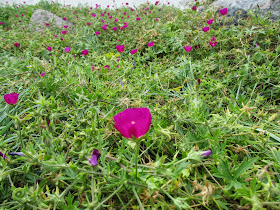"The
State of the Birds report identifies more than two dozen “common birds
in steep decline” — species that are showing early warning signals of
distress, having recently lost more than half of their global
populations. Mostly, these species are barometers for greater
environmental issues. The eastern meadowlark and northern bobwhite are
fading from rural America right along with the family farm and its
smaller-scale agricultural practices of pasturing cows and keeping grass
buffers. Common nighthawks, those fantastic evening acrobats that flash
through our ball-field lights to catch bugs on summer nights, are
disappearing alongside native pollinators like bees. Many experts
suspect that continent-scale declines in the prey of insect-eating birds
have resulted from agricultural and homeowner insecticide use.
I
suggest that the broader conservation argument transcends cost
efficiencies and scientific analyses and should focus instead on the
moral questions posed by Martha. Most of us wish we could see those
storied passenger pigeon flocks for ourselves, so why aren’t we doing
everything possible to keep some of our most common wild things from
meeting the same fate? Don’t our great-grandchildren have the right, as
part of their American heritage, to experience choruses of meadowlarks
singing “spring is here!” from treetops and fence posts?"
Species conservation is a moral and ethical issue. When Fitzpatrick points out insect decline as related to bird decline, this should be a no brainer call to action for gardeners. We see the insect loss, and we see the interaction of birds in our local environment. Our gardens ARE places of protest. The landscapes we have direct control over are collective refuges. Yes, we need to do something about huge swaths of monocultures, poisoned by chemical overuse, that are eradicating the last "wild" places (if they even exist anymore).
It is not a stretch at all to call our gardens a place to exercise and discover our moral and ethical imperatives. If you slather your landscape in pesticides, maintain a huge amount of irrigated lawn with multiple applications of commercial fertilizer, run that mower and spew that exhaust, then this all says something about what you think about the world and those who share it with you (human and non human).
For those who say our gardens should not be burdened with such "heavy" thinking -- to be a place of ideology and belief -- I say gardens have always been a place of heavy ideology. A quick survey of examples from Victorian, Japanese, Persian, and European formal gardens will scream ideology -- as do naturalistic gardens today. If this kind of thinking doesn't belong in our gardens, where does it? How can we hope to learn or effect change if it doesn't start at home? The imperative is to think about how gardens are connected to larger ecosystems, how we are all interconnected, and this calls for a selfless attitude -- which is the antithesis of western culture, and certainly the American ideaology of "don't tread on me, I'm free to do what I want." We also have the happiness myth that expounds the pressure to always appear to be happy and content, and to do (buy) anything to make us happy. But looking at our negative and positive rolls in the environment can make us happy -- knowledge empowers and creates action; whereas denial keeps us trapped in a cycle of stagnation, something corporate spin doctors and government lobbyists love.
Go plant a milkweed and get liberated. Trade in the gas mower for a reel mower, or the lawn for a prairie garden. Live connected and fuller and richer. Let your landscape be an ideology that screams freedom for all species today and tomorrow, including this dude below.







.JPG)





















